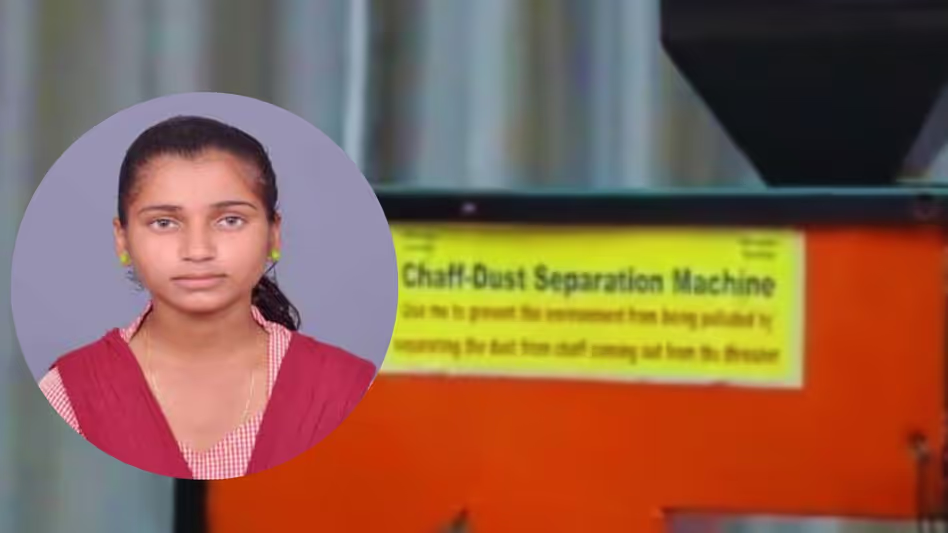In a mud-plastered home without electricity or a toilet, nestled in a quiet farming village of Uttar Pradesh, a young girl watched as children coughed and wheezed near a wheat thresher cloaked in dust. Most walked away. She stayed.
That moment in Class 8 marked the beginning of a journey that would carry Pooja — now 17 and a Class 12 student — from her village in Barabanki to the global science stage in Japan, where she represented India at the prestigious Sakura Science High School Programme, hosted by the Japan Science and Technology Agency.
Her innovation? A dust-free agricultural thresher, built not in a lab, but with scrap metal, a salvaged fan, tin sheets, and persistence — designed to reduce the clouds of particulate matter that have long blanketed Indian farms during harvest season.
A Simple Invention, A Powerful Impact
“I saw little children coughing, trying to cover their faces, while farmers kept working in dust so thick you could barely see,” Pooja recalled. “I wanted to make something that would make it stop.”
With the guidance of a local science teacher and a workshop cornered off in her school, Pooja assembled a prototype thresher that filters dust at the source — making the air safer for both farm workers and the surrounding community. The project earned her recognition from India’s Department of Science and Technology through the INSPIRE Awards, a national platform for young scientific talent.
She became the only student from Uttar Pradesh selected to join 53 students from across the country for the Sakura Science Programme — an international youth exchange designed to foster scientific collaboration and innovation.
Rising Above the Odds
Pooja’s family lives on daily wages. Her home is modest, her resources limited. Yet, her story is anything but.
“She didn’t wait for equipment or labs,” her science mentor said. “She had questions, a sense of justice, and just enough wire and metal to start building.”
Her participation in the Japan programme marked the first time she had stepped outside the country — or even beyond the state. In Tokyo, she met peers from around the world, toured high-tech labs, and presented her model to researchers and educators.
More Than Invention — A Vision
In a world racing toward high-end technologies, Pooja’s solution is a reminder that innovation can also be humble, urgent, and deeply human.
Her thresher doesn’t boast artificial intelligence or smart sensors. But it addresses an age-old and widespread problem — and does so with empathy, sustainability, and the kind of first-principles thinking often absent in formal engineering.
“What can I do to change this?” she asked herself at 13. Five years later, she’s helping reshape how rural India imagines both farming and opportunity.


